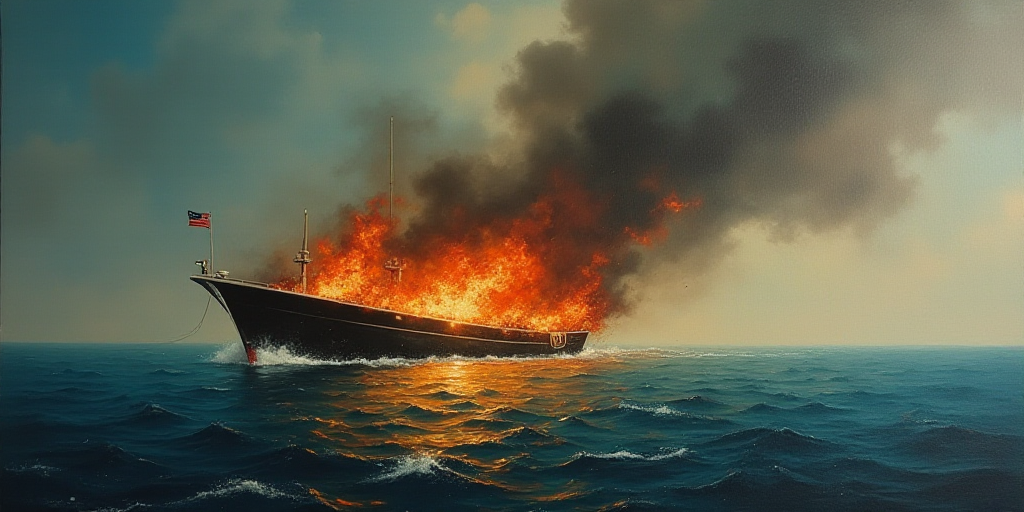Background on Key Players and Context
The Houthi rebels in Yemen claimed on Friday that US airstrikes against an oil port in the Red Sea resulted in “20 deaths and 50 injuries.” The US military confirmed destroying the Ras Issa oil terminal, aiming to cut off a source of fuel and financing for the Iran-backed group.
Since March 15, the US has conducted near-daily airstrikes to halt the Houthi offensive against civilian and military vessels crucial for global trade in these strategic waters.
The Houthis, who control large parts of Yemen including its capital Sanaa, initiated their attacks in late 2023 to support Palestinians in Gaza amid the conflict between Islamist movement Hamas and Israel.
Houthi Claims and US Response
Anees Alasbahi, spokesperson for the Houthi Health Ministry, reported that “the death toll from the US attack on the Ras Issa oil port now stands at 20, with 50 injured.” He added that “five rescuers and ambulance workers died while performing their duties,” denouncing a second US bombing of the port.
Local news channel Al-Massira, affiliated with the Houthi group, captured intense fires and thick smoke enveloping numerous anchored ships. Rescue teams and ambulances are working to find and extract victims and extinguish the fire, according to Alasbahi.
US Objectives and Impact
The US Central Command (Centcom) stated in a press release that the attacks aimed to “weaken the Houthis’ economic power.”
“US forces took action to eliminate this fuel source for Houthi terrorists backed by Iran and deprive them of the illegal income that has funded their efforts to terrorize the entire region for over a decade,” explained Centcom.
The US, which designated the Houthis as a “terrorist organization” in March, accuses them of monopolizing income from the port north of Hodeida, one of Yemen’s most populous cities. Washington also imposed sanctions on a Yemeni bank and its leaders Thursday, alleging they provide “essential support” to the Houthis.
The Houthi offensive has blocked ship passage through the Suez Canal, which normally carries 12% of global maritime traffic. Companies have had to undertake costly detours around the southern tip of Africa due to these disruptions.
The US campaign against the Houthis began under President Joe Biden’s administration, continuing former President Donald Trump’s pledge to maintain military action until the rebels cease threatening maritime transport.
Key Questions and Answers
- Who are the Houthis? The Houthis are a Zaydi Shia Muslim group from Yemen’s north who have been fighting the Yemeni government since 2004.
- Why is the Ras Issa oil port significant? The port is crucial for Yemen’s economy, providing fuel and generating income that supports Houthi activities.
- What is the US objective in attacking the port? The US aims to weaken Houthi economic power by cutting off fuel and financing sources.
- How has the Houthi offensive affected global trade? The attacks have disrupted shipping lanes, causing vessels to detour around Africa’s southern tip and impacting global trade.






